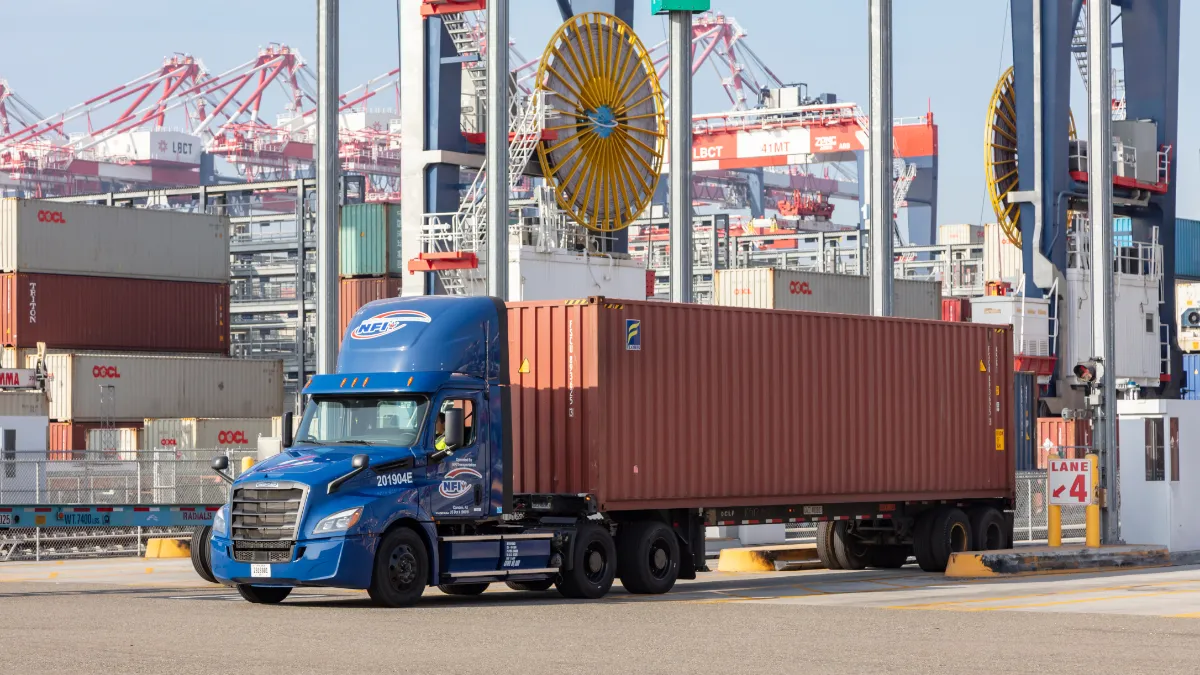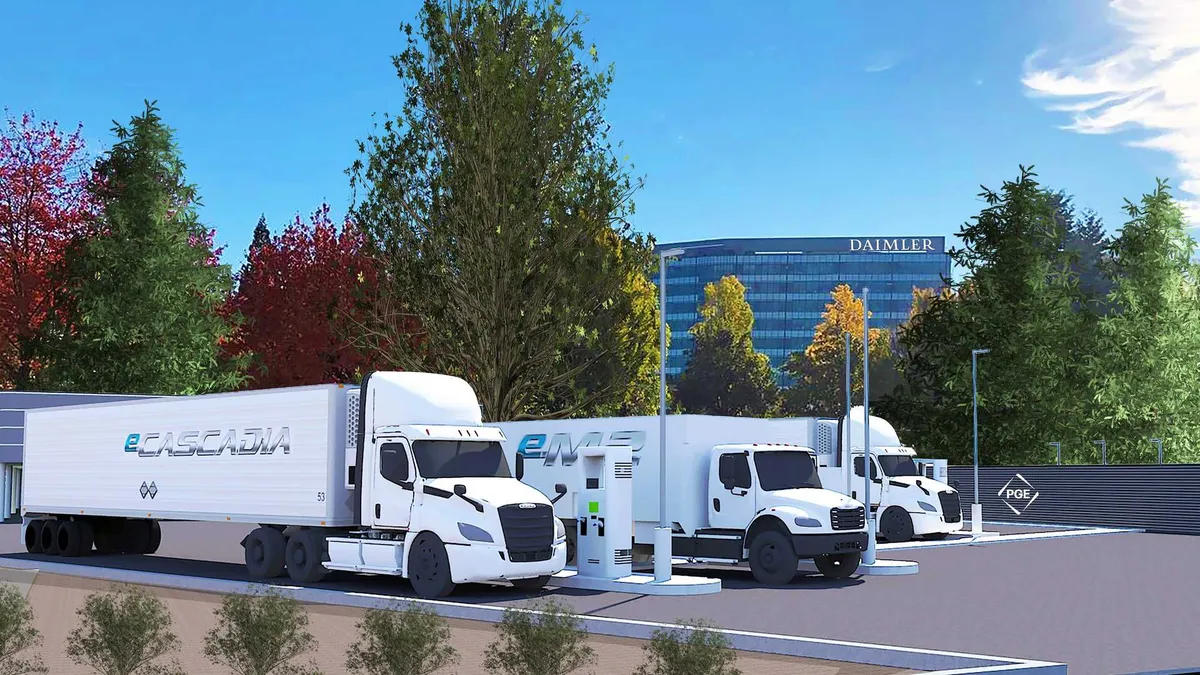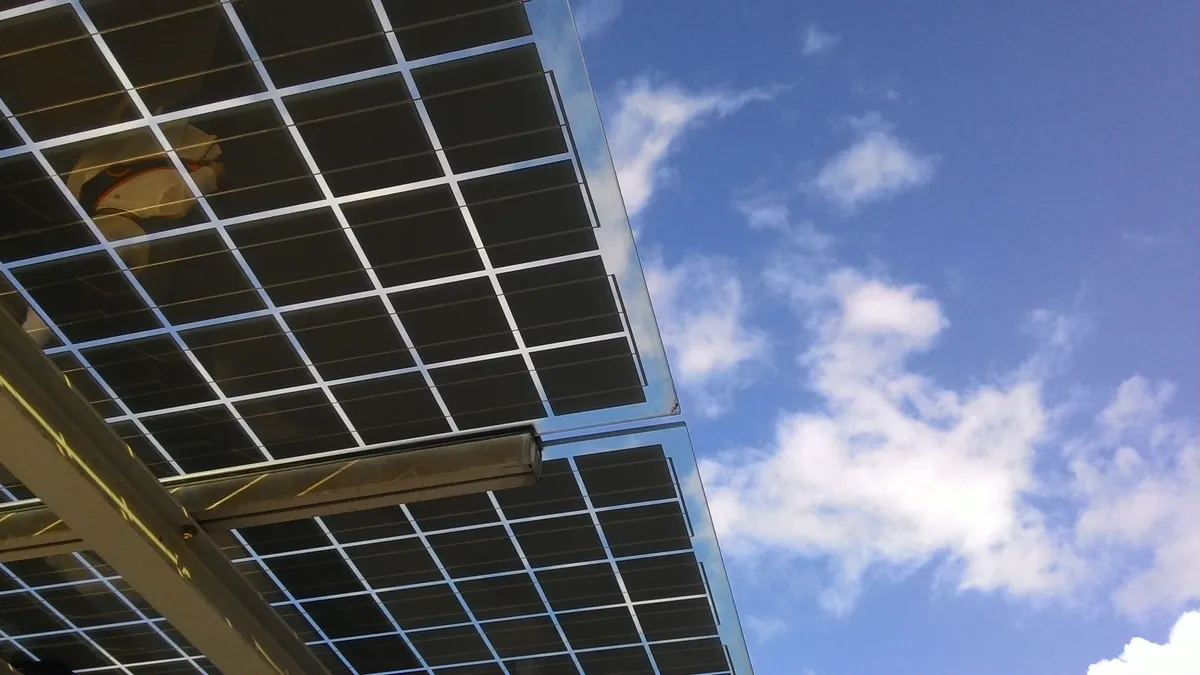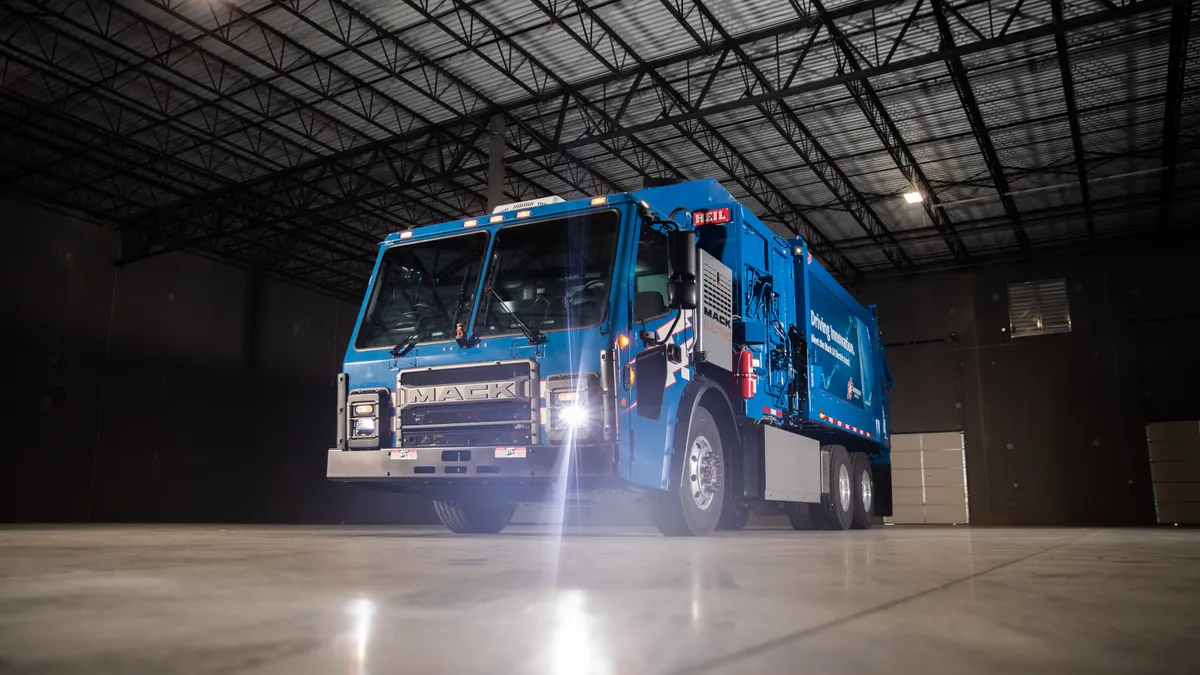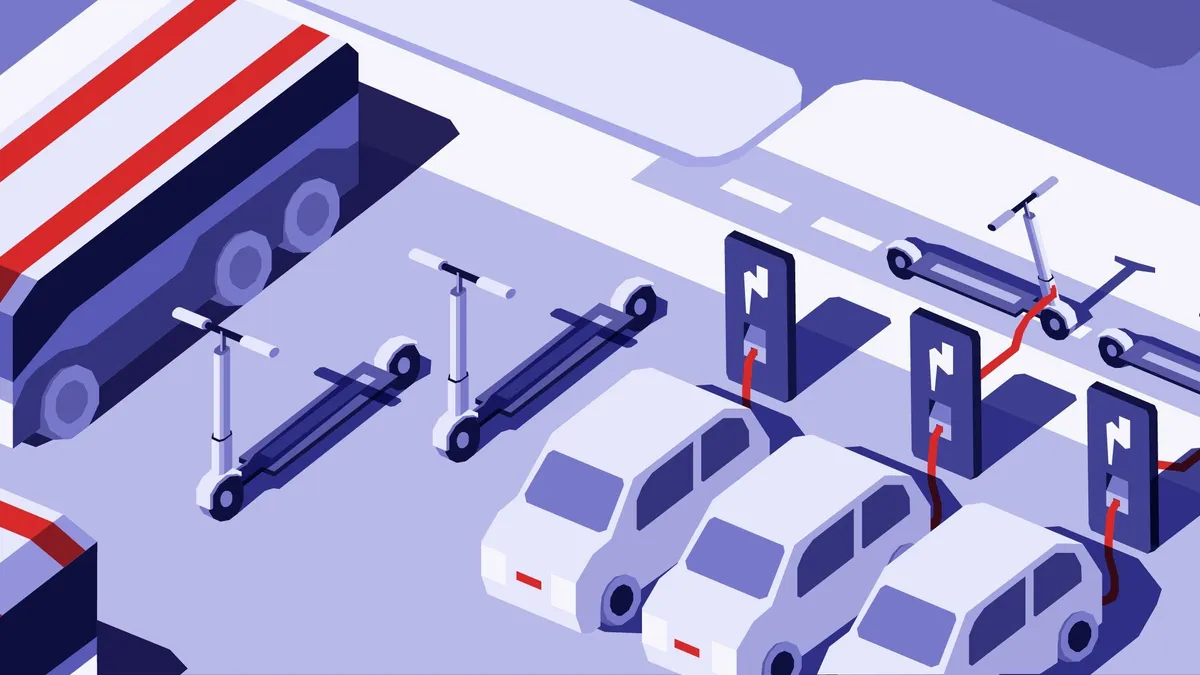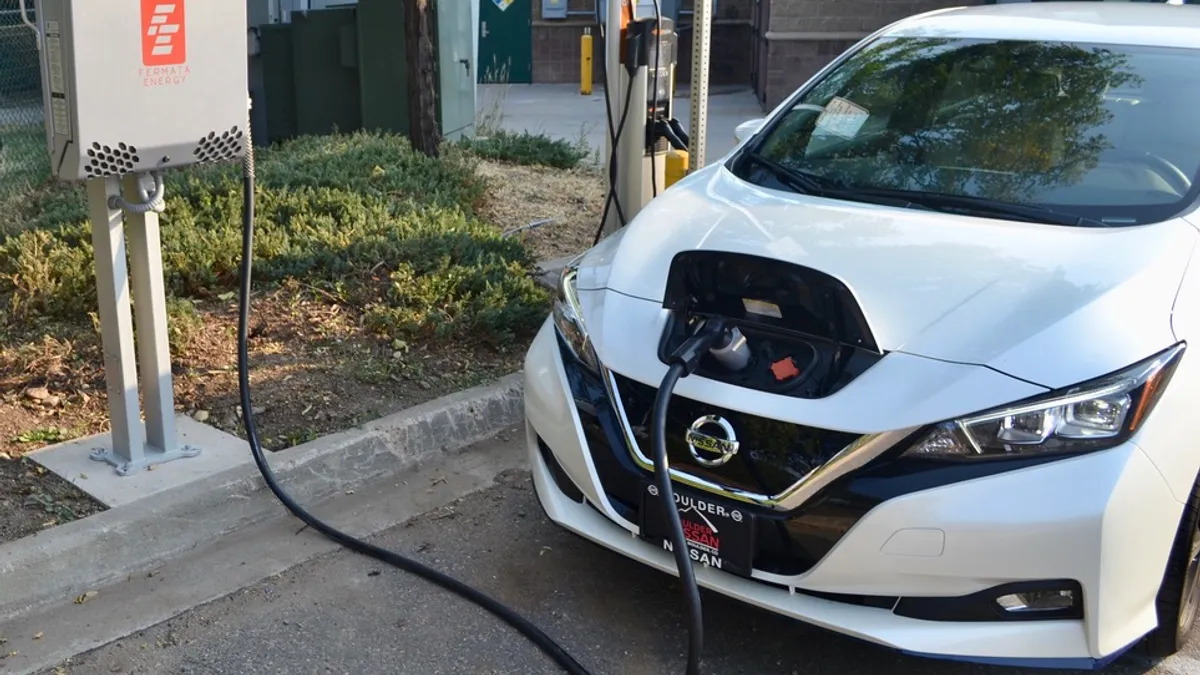Distributed Energy: Page 19
-
Lessons from NFI's electric truck adoption
Transport firms don't have a long history with green tech, but they're taking notes on deployment and collaboration along the way.
By Amanda Loudin • Feb. 11, 2021 -
Grid operators to request extension on FERC Order 2222 compliance, regulator cites 'short' timeline
"FERC, when issuing Order 2222, left many of the most difficult challenges to be dealt with by the RTOs in their stakeholder process," said Ted Thomas, chair of the Arkansas Public Service Commission.
By Catherine Morehouse • Feb. 10, 2021 -
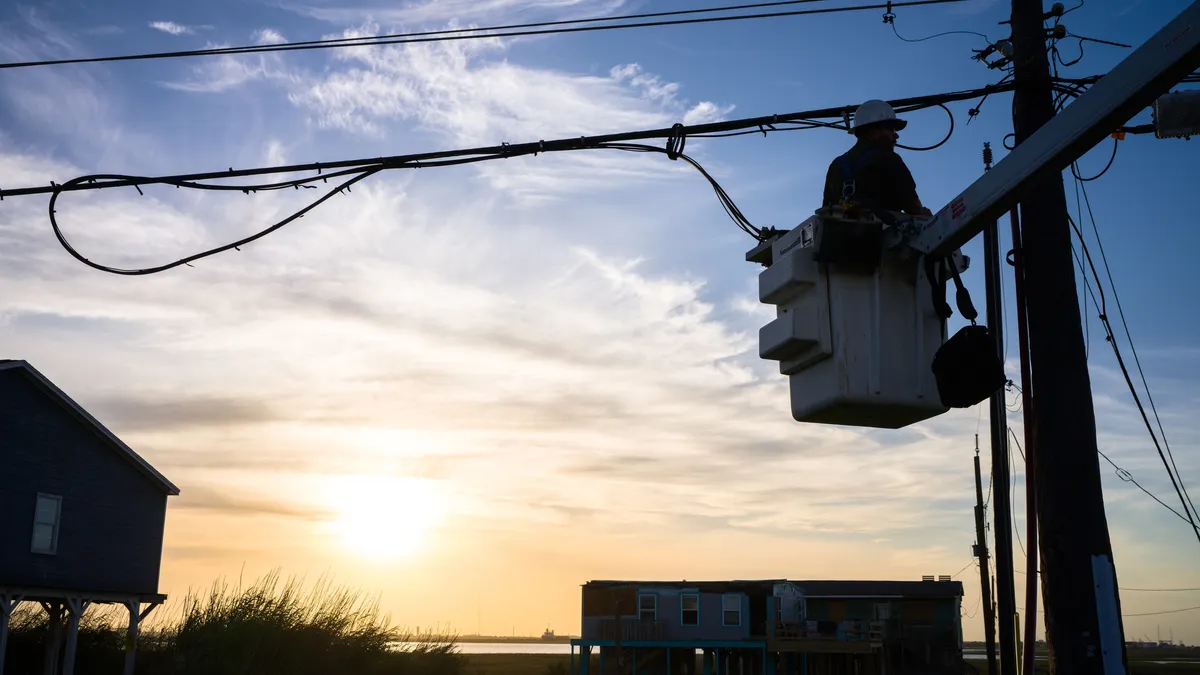 Explore the Trendline➔
Explore the Trendline➔
 Brandon Bell/Getty Images via Getty Images
Brandon Bell/Getty Images via Getty Images Trendline
TrendlineAI in the Power Sector
Artificial intelligence is uniquely positioned to impact the electricity industry from both ends: as the technology driving large load demand growth and as a tool with the potential to make the power system more efficient.
By Utility Dive staff -
Carmakers in US to spend $250B on electrification by 2023, push for national standard, group says
The Alliance for Automotive Innovation plans to work with the Biden administration on a national electrification program to bring all automakers "under a unified set of common requirements."
By Robert Walton • Feb. 10, 2021 -
Ford bets $29B on leading the 'electric vehicle revolution'
CEO Jim Farley said on an earnings call that the automaker has more than doubled its commitment to spending on automation and electrification between now and 2025.
By Chris Teale • Feb. 9, 2021 -
2021: When electric trucks trickle in
Political winds and consumer tastes favor a change in how trucks are fueled. The question is whether manufacturers, fleets and infrastructure are ready for the change.
By Jim Stinson • Feb. 8, 2021 -
Electric vehicles could be 'imperfect substitutes' for gas-powered cars, new study suggests
EVs are being used about half as much as non-EVs, according to the University of Chicago's Energy Policy Institute, meaning policymakers may be underestimating the costs of transportation electrification.
By Robert Walton • Feb. 8, 2021 -
EVs, turbines, solar panels pose circular economy dilemma: NIST workshop
Representatives from throughout the supply chain reflected on how batteries and electronics can find their place as greener solutions in the circular economy at a recent National Institute of Standards and Technology workshop.
By Megan Quinn • Feb. 4, 2021 -
As GM gives 'huge' boost to EVs, states vary in advancing supportive policies, reports find
Washington lawmakers are considering legislation to ban the sale of internal combustion light duty vehicles by 2030, and others are setting 2035 goals.
By Robert Walton • Feb. 3, 2021 -
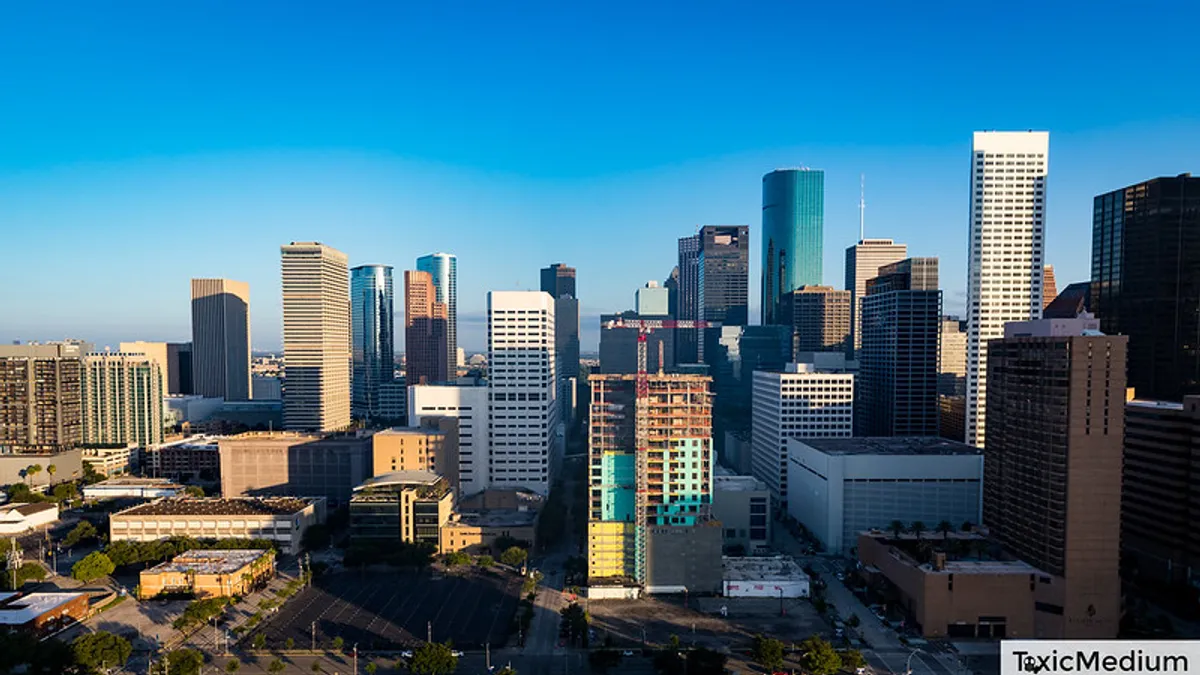
 Barton, Ben. (2017). "Downtown Houston" [Photograph]. Retrieved from Flickr.
Barton, Ben. (2017). "Downtown Houston" [Photograph]. Retrieved from Flickr.
Houston, Uber and BP partner to aid EV transition for drivers
The trio will explore the deployment of BP's rapid charging electric vehicle stations throughout Houston, aiming to support the city's EV adoption goals and plans to create an equitable charging network.
By Cailin Crowe • Feb. 2, 2021 -
Tesla: Batteries better for long-haul EVs, hydrogen is 'just crazy'
CEO Elon Musk said the company does not have enough battery cells to put its Semi truck into full production.
By S.L. Fuller • Feb. 1, 2021 -
New Jersey OKs PSE&G's $166M EV infrastructure program, omits heavy duty vehicles
Some electrification advocates criticized the decision, calling it a "watered-down initiative" that would undercut other energy transition efforts in the state.
By Robert Walton • Jan. 28, 2021 -
Deep Dive
Want a more distributed and lower cost power system? Try this new planning tool
Vibrant Clean Energy offers system modeling to match today's granularity and breaks the barrier between bulk system and distribution system planning.
By Herman K. Trabish • Jan. 28, 2021 -
Deep Dive
Fleet tech forges ahead, for the waste sector, but some bide time on higher-stake EV investments
The pandemic strained finances for some waste and recycling collectors looking to upgrade their operations. But falling costs and ESG pressures could catalyze EV pilots, routing software adoption and more in 2021.
By Maria Rachal • Jan. 27, 2021 -
Biden plan to electrify federal fleet will boost EV market, but many questions remain, experts say
Market observers say the process could take a decade or longer. "For manufacturers, it obviously means a significant increase in demand," said Plug in America Executive Director Joel Levin.
By Robert Walton • Jan. 27, 2021 -
Sponsored by West Monroe Partners
Rethinking the utility low-income approach
Utilities must broaden their approach and improve the ease of access to low-income programming to help improve energy affordability for all.
By AJ Brown, Senior Manager, Energy & Utilities, West Monroe & Brooke Scanlon, Senior Consultant, Energy & Utilities, West Monroe • Jan. 25, 2021 -
Fleet electrification can have 'outsized influence' on EV adoption, RMI analysis concludes
Fleet electrification will require a fundamental business restructuring for many organizations and if executed poorly "can be a series of very costly errors," according to a new report from Rocky Mountain Institute.
By Robert Walton • Jan. 22, 2021 -
Q&A
Honolulu's resilience officer outlines path to carbon neutrality
Chief Resilience Officer Matthew Gonser discussed Honolulu's first Climate Action Plan and the creative way local leaders tackled tough climate conversations with local residents.
By Cailin Crowe • Jan. 22, 2021 -
With FERC Order 2222 compliance deadline 6 months away, many questions loom, analysts find
What DER aggregates will look like, how the new parties will interact with existing grid management, and what individual state roles might be are questions that will have to be decided in the near future.
By Leslie Nemo • Jan. 20, 2021 -
Deep Dive
Hawaii finalizes utility regulation considered potential template for US power system transformation
Stakeholders agree the state's final performance-based regulation order includes opportunities and safeguards that can lead to a new regulatory paradigm.
By Herman K. Trabish • Jan. 19, 2021 -
Colorado approves Xcel's $110M transportation electrification plan, with strong equity emphasis
Xcel's plan includes upfront $5,500 rebates for new EV purchases and $3,000 for used EVs for qualifying customers
By Robert Walton • Jan. 14, 2021 -
Deep Dive
2021 Outlook: 10 power sector trends to watch
A new administration under a new party is one of many signs that 2021 will look different for policymakers, regulators, utilities and other stakeholders, but the continuation of some older trends is expected as well.
By Catherine Morehouse • Jan. 13, 2021 -
Deep Dive
2021 Outlook: The DER boom continues, driving a ‘reimagining’ of the distribution system
The rise of distributed resources will require a renewed distribution system that gives utilities more visibility of what's going on at the customer level to cut costs and protect reliability.
By Herman K. Trabish • Jan. 12, 2021 -
Deep Dive
2021 Outlook: The future of electric vehicle charging is bidirectional — but the future isn’t here yet
Within a few years, cars may be able to power homes, participate in energy markets and help businesses lower power bills, experts say.
By Robert Walton • Jan. 12, 2021 -
Opinion
Microgrids are coming — will they increase inequities?
The resources must not be deployed mainly for the benefit of higher-wealth communities, the author writes.
By Ed Smeloff • Jan. 11, 2021 -
RMI details urgency of ride-hailing electrification
In an insight brief, the nonprofit listed technological capability, financial competitiveness and charging infrastructure as the three major barriers to TNC electrification.
By Kristin Musulin • Jan. 8, 2021

